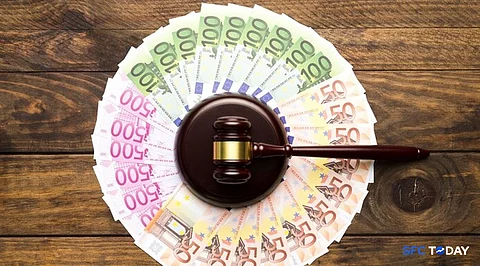

Crypto News – Italy Enforces Stricter Crypto Rules: Italy is poised to introduce stricter crypto rules aimed at regulating the crypto asset market, signaling a proactive stance towards addressing potential risks and enhancing oversight within its financial system.
The new stricter crypto rules, as reported by Reuters, are set to impose significant fines ranging from 5,000 to 5 million euros for offenses such as insider trading and market manipulation.
This initiative, expected to be approved by the cabinet imminently, designates Italy's central bank and market watchdog, Consob, as the primary authorities responsible for overseeing these crypto rules.
These regulatory moves are part of Italy's broader efforts to comply with the European Union's Markets in Crypto Assets (MiCA) framework, which seeks to standardize crypto regulations across member states.
Despite cryptocurrencies having relatively limited household and intermediary exposure in Italy compared to other EU countries, the Italian government's proactive approach underscores its commitment to addressing emerging challenges in the crypto sector while fostering innovation and protecting investors.
The decision to implement stricter oversight aligns with global trends where many jurisdictions are grappling with how to effectively regulate the burgeoning crypto market.
By empowering institutions like the central bank and Consob to enforce rules that combat insider trading and market manipulation, Italy aims to bolster investor confidence and safeguard financial stability.
Furthermore, Italy's regulatory strategy includes mandatory registration for crypto firms operating within its borders, ensuring that these entities comply with transparency and accountability standards. This regulatory framework not only aims to mitigate risks associated with cryptocurrencies but also seeks to integrate digital assets into the country's financial system in a responsible manner.
In recent developments, Italy has seen positive strides in its crypto landscape, exemplified by collaborations between local fintech companies and international platforms like Coinbase.
For instance, partnerships between Conio and Coinbase have aimed to integrate digital assets more deeply into Italy's banking infrastructure, signaling a growing acceptance and exploration of blockchain technology within traditional financial institutions.
These collaborative efforts highlight Italy's cautious approach to embracing cryptocurrencies, balancing innovation with regulatory prudence to create a robust and secure environment for digital asset transactions.
By fostering partnerships that bridge traditional banking services with emerging blockchain solutions, Italy aims to position itself as a forward-thinking player in the global fintech landscape while upholding rigorous standards of investor protection and market integrity.
Moreover, Italy's adherence to EU crypto regulations such as MiCA reflects its commitment to harmonizing crypto regulations across the bloc, promoting consistency and coherence in how digital assets are governed and traded.
This approach not only facilitates cross-border transactions but also enhances regulatory clarity for market participants, fostering an environment conducive to innovation and sustainable growth in the digital economy.
Looking ahead, Italy's regulatory stance on cryptocurrencies is likely to evolve in response to market developments and international standards.
As the crypto market continues to mature and attract broader interest from investors and institutions alike, effective regulation will be crucial in mitigating risks, preventing financial crimes, and promoting fair and transparent market practices.
In conclusion, Italy's move to introduce stringent crypto asset regulations underscores its proactive approach to managing the challenges and opportunities presented by digital currencies.
By enacting robust oversight mechanisms and aligning with EU regulatory frameworks, Italy aims to foster a secure and thriving ecosystem for digital asset innovation while safeguarding the interests of investors and maintaining financial stability.